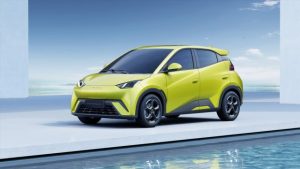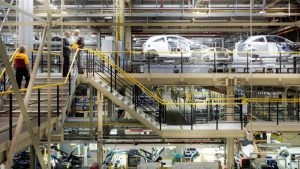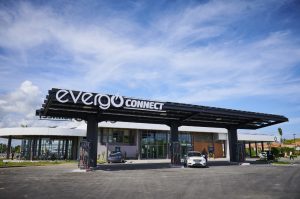Traffic congestion in the large cities of Latin America, combined with the pollution generated by the vehicle fleet, exposes the need to promote new forms of environmentally friendly mobility and solidify the public transport network in a sustainable manner.
In this context, representatives of prestigious global companies and public sector authorities met at Latam Mobility: Chile, a meeting organized by the region’s leading sustainable mobility community to exchange ideas and perspectives on the subject.
The panel called “The Road to Zero Emissions in Public Transport (Cargo Infrastructure and Means of Transport)”, was formed by the Enel X Chile Manager, Karla Zapata; the Sustainability and Innovation Director of the Municipality of Vitacura, Diego Riveaux; the Communications and Marketing Manager of BYD Chile, José Miranda; the Regional Director South Cone of Optibus, Álvaro Iriarte and the Vice President Smart Infrastructure of Siemens, Christian Candela.
In the case of Enel, Zapata celebrated that in Chile there is a National Electromobility Strategy as a defined roadmap to promote new technologies, which will allow that by the end of 2022, the capital Santiago will have 1526 electric buses.
“It is necessary to provide the appropriate infrastructure conditions and Enel wants to provide it with the installation of 1200 charging points throughout Chile, and that will be accompanied by a whole user experience when charging. We have taken giant steps and we are a reference in the region”, he explained.
He revealed that the company has projects in the pipeline, such as the arrival of electric garbage collection trucks, in alliance with the town of Vitacura, a plan that they consider of vital importance for sustainable mobility to extend beyond the large capital cities.
Zapata assured that electromobility offers many opportunities to innovate and prove that this technology can be effective, profitable and that it can reach ordinary citizens.
BYD’s Vision
The Chinese manufacturer has had an important 2022 with respect to sales of electric cars on a global scale, being among the first brands that have marketed vehicles with new energies in this first half of the year.
With the implementation of its electric buses in Chile, BYD has avoided the use of more than 21,000 liters of diesel, according to figures presented by its Communications and Marketing, José Miranda.
In spite of the great advances, Miranda considers that the authorities must approve the necessary incentives for the massification of electromobility, and at the same time, operators and companies must work on the optimization of the electric network in order to be prepared for when the regulations become more viable.
Optibus and the Vision Change
The Regional Director South Cone of Optibus, Álvaro Iriarte, emphasized during his participation in Latam Mobility: Chile 2022, the need to make a paradigm shift with respect to fleet planning and management, which, he said, is being carried out as if buses were still running on diesel.
“We need to promote the mentality that electric vehicles are very different for planning aspects such as how long the bus will be stopped and how long it will take to charge, a situation that still generates uncertainty. That is why we evaluate what type of chargers and batteries they need, if there are slopes on the road, among others.” “The technology exists, but we have to change the vision,” he said.
It is worth noting that Optibus already has operations in 1,000 cities around the world, through a technological software capable of planning and managing fleets in the cloud.
Cargo and Network
As one of the technology companies with the longest tradition worldwide, Siemens is making inroads into the world of sustainable mobility with the development of clean energy projects.
The company’s Vice President of Smart Infrastructure, Christian Candela, explained that in order to massify and promote electromobility, work must be done on two important fronts: charging infrastructure and the electric grid.
Specifically on the electric infrastructure, Candela said in the Latam Mobility panel that it still represents a challenge, since the current generation still depends on fossil fuels. In that sense, he detailed that Siemens is developing strategic alliances for the execution of projects in wind and solar farms that allow reducing primary carbon energy sources.
Public Sector Importance
The Director of Sustainability and Innovation of the Municipality of Vitacura, Diego Riveaux Marcet, represented the public sector in the panel organized by Latam Mobility.
The official pointed out that the town is one of the Chilean pioneers in sustainability with the implementation of the so-called clean spaces such as the Bicentennial Park, the installation of solar panels and its adhesion to the City Race to Zero program, which seeks carbon neutrality by the year 2050 through the application of new technologies.
Among the municipality’s most outstanding projects is the arrival of the first electric garbage collection truck, in partnership with the Enel group.
For Riveaux, it is essential that the necessary incentives be approved so that electromobility is not only limited to large companies, but is accessible to all citizens.




